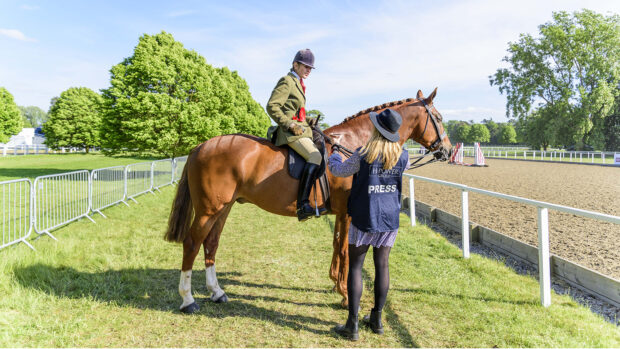The word “interview” will strike fear into even the most confident person. The whole application process can be a stressful time. So how can you make it easy on yourself and end up with the equestrian job you are looking for?
Sara Shears who, after various jobs, now works for show jumper Sarah Lynch, says: “Most of my jobs have come about through word of mouth.
“Adverts aren’t always clear. You might ring up about a position and find out its in the north of Scotland and completely unsuitable. It can be very time-consuming,” she warns.
By signing up to a recruitment agency, the search process is eliminated and, as William Fox-Pitt’s groom Jackie Potts found out, what might start off as a temporary position could lead to fantastic opportunities.
“Through an agency I got offered one week’s work with William. I’ve been here ever since and that was 22 years ago,” she says.
Caroline Dawson, Carl Hester’s former head groom, also advises: “Keep an eye on the press to see what is being advertised. You’ll soon learn who can’t keep their staff by how often they advertise.”
Continued below…

6 top tips for finding a job in the equine industry
Find out how equine graduates can boost their job prospects with these top tips

Dos and don’ts for equestrian work experience
Placements can be five days of toe-curling agony, and finger-tapping boredom — or it can set you on the right
Top tips for success
- Be pro-active and use your initiative to get your foot in the door
- Look for adverts in the local and equestrian press, tack shops, websites and through recruitment agencies
- Keeping in touch with former colleagues and employers is a great way to hear about positions and a good way to be recommended
- If you want to work in a particular yard, or think a vacancy might be coming up, send a speculative CV and covering letter
- Don’t just print off your standard CV and letter. Tailor your application according to the position for which you are applying
- The letter is your first contact with a potential employer, so get it right
- Refer to the job title and where and when the job was advertised
- Highlight your abilities and why they are relevant
- If you don’t have all the skills required, explain how you will improve them
- Refer to the enclosed CV
- Make sure you have researched the company/employer to whom you are applying and know what the job entails
- Address the letter to a named person
- Convince them you will fit in well and conclude with a confident: “I look forward to hearing from you”
- The CV is there to give the basic factual information
- Start with personal details (name, address, phone number, date of birth)
- List work experience, education, qualifications and skills relevant to the job such as an HGV licence, clipping and first aid
- Include referees, one of whom should be your most recent employer
- Don’t use “I,” but include as many active words as possible — such as gained, initiated, supervised
- Use headings, fonts, bolds and margins consistently
- Keep it under two pages
- Ask someone to check for spelling, grammar and appearance




